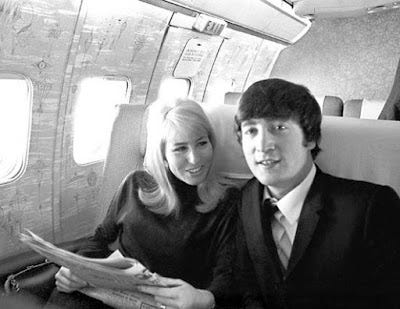5 things I learned about John Lennon from his first wife's book

Surprisingly, John Lennon's first wife offers up a lot of interesting nuggets (it seems like they must have all been noted by now) about The Beatle's early life. For Beatles' lovers, this is definitely worth a quick read, and here are five nuggets to whet your appetite.
When John was murdered in December 1980, Cynthia Lennon, his first wife, was running a little bistro with a friend (the ex-wife of Paul McCartney's brother James) in North Wales. This was more than a decade after their divorce, the breakup of the Beatles, and the beginning of John's relationship with Yoko Ono. When she heard the news, she was visiting Mo Starkey, Ringo Starr's first wife who had a brief fling with George Harrison after their divorce. Ringo called and told her. Cynthia's son, Julian Lennon, lost his dad at the age of 17, the same age both John and Cyn each lost a parent.
John died on December 9 (December 8 by U.S. time), which was eerie because of all the significant dates in his life that had to do with the number, not to mention his songs "One After 909," "Revolution 9," and "#9 Dream." Yoko was happy to have Julian fly immediately to New York, where John was shot, but was blunt in telling Cynthia to stay away.
Some of the early chapters are a little unexciting, as they detail the bad guy John falling in love with the nice girl Cynthia at art school. But it picks up when she meets Paul McCartney, George Harrison, and Stuart Sutcliffe, whose place John and Cynthia would borrow for their sexual encounters. She got along particularly well with Paul and Stuart, and one day after Stuart and Cynthia had innocently danced, John hauled off and hit her hard. She determined she would leave him then but clearly didn't.
At age 5, John's aunt Mimi took him away from living with his mother Julia because Julia was living married with someone else and Mimi thought it was unfit for John.
When Stuart Sutcliffe died of a brain hemmorage at the age of 22 in 1962, John always acted like he did when someone close to him died. He laughed uncontrollably. Then he would not talk about it for weeks or months and keep his emotions bottled up inside.




